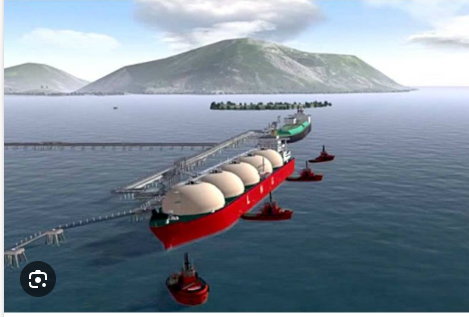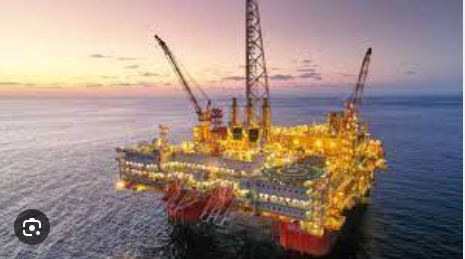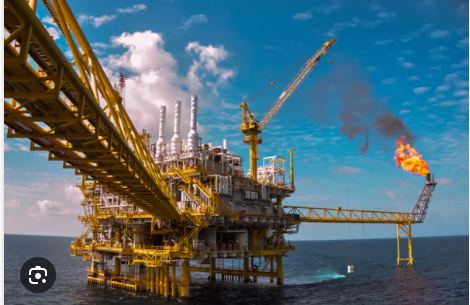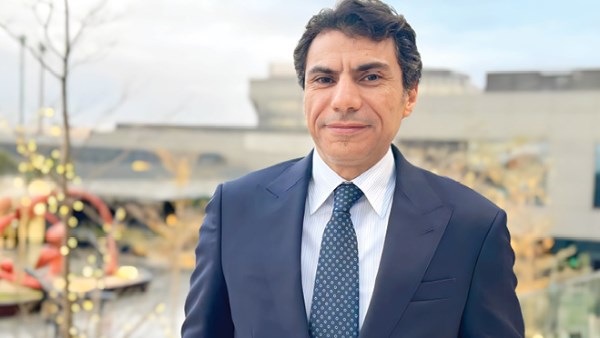Global natural gas supply needs $7 trillion investment to avoid gas shortage

The Japanese Institute of Energy Economics announced that the world will need investment of $7 trillion to ensure there is sufficient Global natural gas supply through 2050 as nations shift to green and cleaner energy sources as the scenario assumes a 56% reduction in emissions by 2050، as emerging nations will not be able to achieve carbon neutrality by the middle of the century and this investment will be required to build new liquefied natural gas export plants، refurbish existing facilities and develop gas fields.

Bloomberg News Agency reported that the Japanese Institute of Energy Economics، JIEE، assumes a 56% reduction in emissions by mid-century، as emerging nations will not be able to achieve carbon neutrality by 2050 and if emissions remain at current levels، nearly $10 trillion will be needed to maintain adequate Global natural gas supply through thr middle of the urrent century.

Global natural gas consumption and ambitious net zero proposals have hampered future planning
The Japanese Institute of Energy Economics، JIEE، a think tank in Japan، stated that differing forecasts for Global natural gas consumption and ambitious net zero proposals have hampered future planning، according to the International Gas Union which said in a report earlier this week.

The Japanese Institute of Energy Economics، JIEE، a think tank in Japan، confirmed that the International Energy Agency، IEA، sees Global natural gas demand peaking this decade and therefore no new long-lead projects are required، while major producers، including Chevron Corp. and Shell Plc، assert that gas will play a long-term role in the energy transition، especially as countries shift away from dirtier coal.
Countries look to cut emissions and shift to gas from coal
As countries look to cut emissions and shift to gas from coal، these investments will have to go to development of new gas fields، construction of new LNG export facilities، and expansion of existing plants، therefore، around $7 trillion in global investments in natural gas supply are necessary to ensure enough gas and avoid supply crunches through 2050، according to the Institute of Energy Economics، Japan (JIEE).

However، in a scenario in which emissions stay at current levels by 2050، the world will need almost $10 trillion to avoid natural gas shortages as the pace at which natural gas demand is set to grow over the coming years is expected to slow، according to the the Japanese think tank، Institute of Energy Economics، Japan (JIEE).
Global natural gas markets have entered a new and more uncertain period
Keisuke Sadamori، IEA Director of Energy Markets and Security، indicated that after their heyday between 2011 and 2021، the world’s natural gas markets have entered a new and more uncertain period that is likely to be characterised by slower growth and higher volatility as well as could lead to a peak in global demand by the end of this decade.

Many contrasting outlooks on natural gas demand in the coming years make operators hesitant to invest in new supply، the International Gas Union (IGU) of operators comprising 90% of the global gas market said in a report earlier this week in accordance with the report of the Japanese Institute of Energy Economics، JIEE، a think tank in Japan.
The green energy transition at risk
The unprecedented demand uncertainty and insufficient level of investment in natural gas، low-carbon، and renewable gases are putting the green energy transition at risk، undermining energy affordability، security، and sustainability، the International Gas Union، IGU said in the Global Gas Report 2023 prepared in cooperation with Italian gas grid operator Snam and research firm Rystad Energy.

Stefano Venier، Snam’s CEO، warned that it is important to continue investing in gas infrastructure to secure reliable and affordable natural gas supply and accelerate the development of green، low-carbon gas and CCS، considering the key role that molecules will play in the energy mix of the near and longer future.
JIEE: the natural gas industry needs a massive injection of cash
The Japanese Institute of Energy Economics، JIEE، a think tank in Japan، asserted that the natural gas industry needs a massive injection of cash، otherwise the world might run dry before 2050 and many countries are on track to run out of gas in the coming decades unless the industry finds an additional $7 trillion.

But that figure isn’t set in stone: it depends on how much natural gas we use، and that depends on how quickly green energy ramps up in the meantime، while that $7 trillion figure is based on the globe cutting down on emissions by 56% before 2050، and the International Energy Agency believes that’s possible، saying that gas demand will peak in the next few years.

That’s no guarantee، though، and if that target isn’t reached، the natural gas sector will need to find almost $10 trillion to fund new plants and maintain existing ones in a bid to keep up with demand، according to the Japanese Institute of Energy Economics، JIEE، a think tank in Japan.
The natural gas will be a key energy source in the long run
Major players like Chevron and Shell، for example، think natural gas will be a key energy source in the long run، even as dirtier coal takes a backseat and despite projections like that، though، investment in the gas sector fell 58% between 2014 and 2020 and as more money is pouring into green and renewable energy projects، it’ll only get harder for old-fashioned projects to attract wads of cash، however، unless that changes، the price of gas could end up a whole lot more volatile than it has been before.

The green energy isn’t the only theme attracting investors: energy security and nuclear energy projects are both grabbing attention right now such as Nuclear energy company Orano which just funneled nearly $2 billion into a uranium-enrichment plant in the south of France، spurred on by the prospect of western countries limiting their reliance on Russian gas.








-1120252475029447.jpg)













